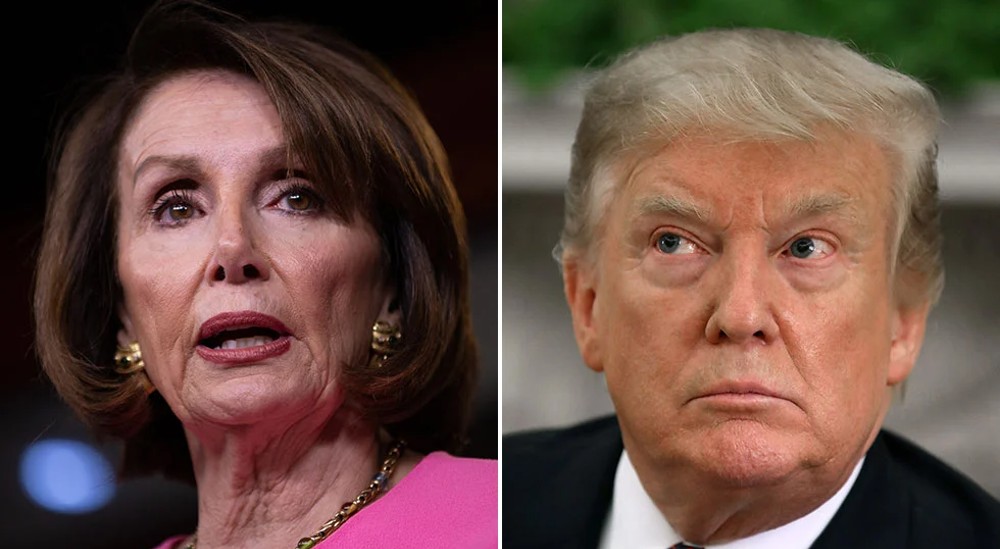OPINION: This article may contain commentary which reflects the author's opinion.
The Democrat-led U.S. House Oversight Committee announced on Thursday that it has reached a deal with former President Donald Trump over his financial records.
CNN reported that the committee agreed to end litigation over Trump’s personal financial records.
The committee stated in a press release that Trump’s accounting firm, Mazars, will turn over the 45th president’s financial records. CNN reported the filing doesn’t offer specifics about the terms of the deal.
The Democrat-led committee issued its first subpoena for Trump’s financial records in April 2019, which has resulted in a three-year battle.
“After numerous court victories, I am pleased that my Committee has now reached an agreement to obtain key financial documents that former President Trump fought for years to hide from Congress,” House Oversight Chairwoman Carolyn Maloney said.
“After facing years of delay tactics, the Committee has now reached an agreement with the former President and his accounting firm, Mazars USA, to obtain critical documents. These documents will inform the Committee’s efforts to get to the bottom of former President Trump’s egregious conduct and ensure that future presidents do not abuse their position of power for personal gain” Maloney added.
“Under the agreement reached by the Committee, former President Trump has agreed not to further appeal the D.C. Circuit’s ruling, and Mazars USA has agreed to comply with the court’s order and produce responsive documents to the Committee as expeditiously as possible,” the press release from the committee said.
Earlier this month, a federal judge ruled that House Democrats should be able to access some of Trump’s tax records through a subpoena to his accounting firm Mazars USA.
The U.S. Court of Appeals for the District of Columbia Circuit ruled that Trump’s tax returns fall under the House of Representatives’ subpoena powers.
“The Chairman of the United States House of Representatives Committee on Ways and Means filed a statutory request for documents from the Department of the Treasury related to then-President Donald J. Trump and related entities,” the court related as background. “Treasury initially objected to the request, and the Committee filed this lawsuit. After a change of administrations, Treasury acquiesced, stating that it intended to comply with the request. In the meantime, the Trump Parties intervened in the action. The district court ruled in favor of the Committee. Intervenors appeal. For the reasons set forth below, we affirm.”
“As a general rule, Title 26, Section 6103 of the United States Code makes tax returns and return information confidential unless their release is authorized by an exception enumerated in that same section,” the court’s majority opinion held. “26 U.S.C. § 6103(a). Section 6103 includes a number of exceptions to the general rule of confidentiality but only one is at issue here. Section 6103(f)(1)provides that [u]pon written request from the chairman of the Committee on Ways and Means of the House of Representatives . . . the Secretary shall furnish such committee with any return or return information specified in such request . . . . 26 U.S.C. § 6103(f)(1). At bottom, this case simmers down to the constitutionality and application of § 6103(f)(1). Operating separately from § 6103(f)(1), IRS regulations give the President’s tax returns special consideration.”
“While IRS audits are often random, the IRS has required the audit of the sitting President’s tax returns since 1977,” the court continued. “This Presidential Audit Program is a creature of IRS regulations and is not required or governed by statute.”
“Against both the Committee and Treasury, the Trump Parties asserted that the Request lacks a legitimate legislative purpose and violates the separation of powers. Against Treasury, the Trump Parties alleged that § 6103(f)(1) is facially unconstitutional and that compliance with the Request would be a violation of the First Amendment,” the court added.
JUST IN: A federal appeals court signs off on a House Ways and Means Committee request to obtain former President Donald Trump's tax returns from the IRS https://t.co/BmGlLRk9C5
— CNN Politics (@CNNPolitics) August 9, 2022
